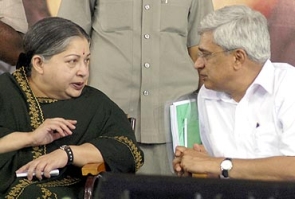New Delhi, Mar 22: The exercise to update the National Population Register (NPR) and the first phase of the Census 2021, scheduled to begin from April 1, are likely to be deferred for an indefinite period due to Coronavirus pandemic, officials said.
A formal order on this effect is expected within a day or two.
Discussions are going on at the highest level of the government and in all probability, the NPR and house listing phase of the Census work will be deferred till the threat of the Coronavirus is over, a home ministry official said.
The exercise to update NPR and the housing listing phase of the Census is scheduled to be carried out across the country from April 1 to September 30.
Last week, the home ministry had said the preparation for the Census 2021 and updation of the NPR were at its peak and they will begin from April 1.
The ministry said this after a conference of the Directors of the Census Operations on status of preparatory work around Census 2021 and NPR updation.
There has been opposition from several state governments to the NPR and some of the assemblies even adopted resolutions expressing reservations on the exercise.
The states which have been opposing the NPR include Kerala, West Bengal, Punjab, Rajasthan, Chhattisgarh and Bihar.
However, most of them also said they will cooperate with the house listing phase of the Census.
The objective of the NPR is to create a comprehensive identity database of every usual resident in the country.
The database would contain demographic as well as biometric particulars, they said.
The notification for the house listing census and NPR exercise came recently amid furore over the contentious Citizenship Amendment Act (CAA).
The home ministry officials said most of the states have notified provisions related to the NPR.
The NPR is a register of usual residents of the country. It is being prepared at the local (village/sub-town), subdistrict, district, state and national levels under provisions of the Citizenship Act, 1955 and the Citizenship (Registration of Citizens and Issue of National Identity Cards) Rules, 2003.
The data for NPR was last collected in 2010 along with the house listing phase of the Census 2011. Updating of this data was done during 2015 by conducting door to door survey.
While updating the register in 2015, the government has asked details like Aadhaar and their mobile number.
This time, the information related to their driving licence and voter ID card may also be gathered, the officials said, adding that PAN card details will not be collected as part of this exercise.
Though information regarding the place of birth of parents will be sought, it is up to the residents whether to respond the question as it is voluntary.
For the purposes of the NPR, a 'resident' is defined as a person who has lived in a local area for the past six months or more, or a person who intends to reside in that area for the next six months.
The law compulsorily seeks to register every citizen of India and issue a national identity card.
The demographic details of every individual are required for every usual resident: name, relationship to head of household, father's name, mother's name, spouse's name (if married), sex, date of birth, marital status, place of birth, nationality (as declared), present address of usual residence, duration of stay at present address, permanent residential address, occupation, educational qualification.
The Union Cabinet has approved Rs 3,941.35 crore for the NPR exercise.
 Chennai, Mar 7: Miffed over ruling AIADMK’s “approach” in finalising seat-sharing agreement for the Lok Sabha polls in Tamil Nadu, CPI (M) and CPI on Thursday called off their month-old alliance with the Jayalalitha-led party.
Chennai, Mar 7: Miffed over ruling AIADMK’s “approach” in finalising seat-sharing agreement for the Lok Sabha polls in Tamil Nadu, CPI (M) and CPI on Thursday called off their month-old alliance with the Jayalalitha-led party.




Comments
Add new comment